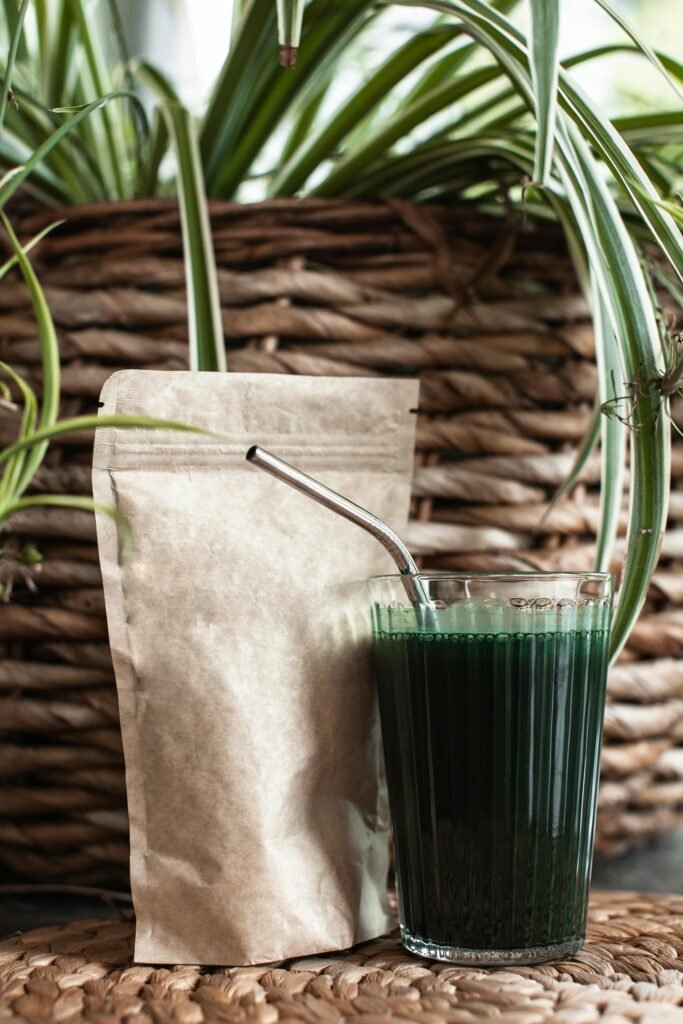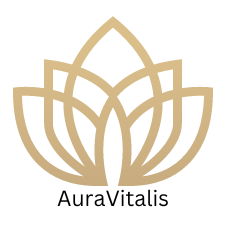
Spirulina, often called a “superfood,” is taking the wellness world by storm—and for good reason! Packed with nutrients, this tiny blue-green algae delivers big benefits. After tuning into a fascinating podcast featuring Dave Asprey and Catharine Arnston, I couldn’t wait to dive deeper and share the amazing health benefits of spirulina with you. Whether you’re new to spirulina or already a fan, this article will inspire you to embrace its potential for better health and energy.
What is Spirulina?
Spirulina is a type of blue-green algae that grows in both fresh and saltwater. For centuries, it has been revered as a nutrient powerhouse, with ancient Aztec civilizations reportedly using it as a protein source. Today, it’s making waves as a sustainable, nutrient-dense supplement that can fit seamlessly into modern lifestyles.
Why Spirulina is a Game-Changer
You know that feeling when you find something so good you just have to share it? That’s spirulina for me. I remember trying it for the first time in my smoothie and feeling an instant energy boost. It was subtle but transformative, like having a great yoga practice on a sunny day—pure magic. But spirulina isn’t just about feeling good in the moment; it offers long-term health benefits that are hard to ignore.
Nutrient-Dense Superfood
One of the most compelling aspects of spirulina is its incredible nutrient profile. Just a small amount contains:
- Protein: Over 60% protein by weight, making it a plant-based protein powerhouse.
- Iron: More bioavailable than iron from many other sources, supporting energy and vitality.
- B Vitamins: Especially B12, which is often challenging to get from plant-based foods.
- Phycocyanin: This unique antioxidant gives spirulina its vibrant blue-green color and fights inflammation.
Imagine adding something to your routine that packs all these benefits into just a teaspoon. It’s a win-win!
The Amazing Health Benefits of Spirulina
Spirulina’s magic lies in its versatility. Here’s why you should consider adding it to your wellness toolkit:
1. Boosts Energy Naturally
Spirulina is like nature’s multivitamin. The combination of iron, B vitamins, and protein helps enhance your energy levels without the crash of caffeine. For me, replacing that mid-afternoon coffee with a spirulina-infused drink was a total game-changer. It’s incredible how much smoother my days feel now.
2. Supports Detoxification
Did you know spirulina can help detoxify heavy metals from your body? Catharine Arnston shared how spirulina binds to toxins and aids in their removal. This is especially important in today’s world, where exposure to pollutants is nearly unavoidable.
3. Enhances Immune Function
Packed with antioxidants, spirulina helps fight oxidative stress, boosting your immune system. Adding a scoop to my morning smoothie has become my daily armor during flu season.
4. Improves Gut Health
A healthy gut equals a happy life. Spirulina promotes the growth of beneficial gut bacteria, improving digestion and overall wellness. This one hit home for me—since adding spirulina, I’ve noticed a significant improvement in my digestion.
5. Promotes Healthy Skin
Here’s one for my beauty enthusiasts: spirulina is rich in antioxidants and vitamins that combat skin-aging free radicals. My skin feels more radiant and hydrated since I started using it.
How to Incorporate Spirulina into Your Routine
Starting with spirulina is easier than you might think. Here are some of my favorite ways:
Smoothies
Blend 1 teaspoon of spirulina powder with your favorite fruits, greens, and a liquid base. My go-to is a mix of blueberries, spinach, coconut water, and spirulina.
Energy Bites
Mix spirulina with dates, nuts, and coconut flakes to create nutrient-packed energy bites perfect for on-the-go snacking.
Spirulina Tablets
If the taste isn’t your thing, tablets are a convenient option. Swallow them with water, and you’re good to go.
Face Masks
For a skin-loving treat, mix spirulina with honey and yogurt for a rejuvenating face mask. Trust me, your skin will thank you!
Sustainability and Spirulina
Not only is spirulina great for you, but it’s also good for the planet. It requires minimal resources to grow and has a lower environmental impact compared to other protein sources. Dave Asprey highlighted spirulina as a potential solution to global nutrition challenges, making it even more worthwhile to add to your routine.
A Personal Testimonial
When I started my spirulina journey, I was skeptical. Could a teaspoon of green powder really make a difference? Fast forward three months, and I’m a believer. My energy levels are higher, my skin is glowing, and I’ve even noticed an improvement in my sleep quality. Spirulina has become a non-negotiable part of my wellness routine.
Top Spirulina Picks for Your Wellness Journey
Ready to unlock the amazing health benefits of spirulina? Here are my top recommendations to get you started:
- Fushi Organic Spirulina Capsules, find yours here: Perfect for on-the-go, these capsules deliver high-quality spirulina in an easy-to-swallow form.
- Rainforest Foods Organic Spirulina Tablets, see it here: Sustainably sourced and packed with nutrients, these tablets are a convenient daily supplement.
- Erbology Organic Spirulina Powder, scoop yours here: Ideal for smoothies, this powder blends seamlessly for a vibrant nutritional boost.
- NKD Living Organic Spirulina Powder, grab yours here: Versatile and nutrient-rich, this powder is great for cooking, baking, or your favorite drinks.
Each of these options is organic and high-quality — making it easy to choose the one that fits your lifestyle!
Final Thoughts
Spirulina isn’t just a superfood; it’s a lifestyle upgrade. From boosting energy to supporting immunity and detoxification, the amazing health benefits of spirulina are undeniable. If you’re ready to feel your best and make a positive impact on the planet, there’s no better time to start.
Disclaimer: If you click my links and make a purchase, I may earn a small commission at no extra cost to you. Thank you for your support!
The content provided on this blog is for informational purposes only and is not intended as a substitute for professional medical advice, diagnosis, or treatment. Always seek the advice of your physician or other qualified health provider with any questions you may have regarding a medical condition. Never disregard professional medical advice or delay in seeking it because of something you have read on this blog.
